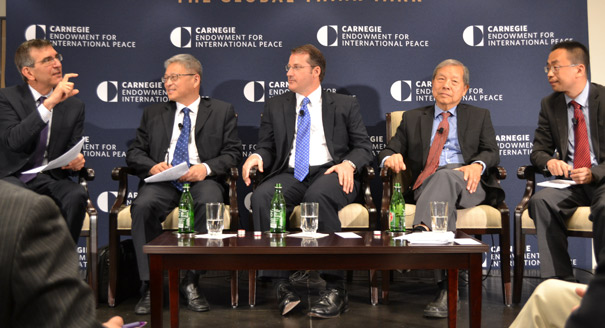Registration
You will receive an email confirming your registration.
President Obama’s recent visit to Asia underscored the importance of the U.S.-China relationship and the challenge of managing it in the context of increasing interdependence, but also tension and mistrust. Both countries have strong incentives to find ways to operationalize a new type of major country relationship so that differences do not derail cooperation on a broad spectrum of bilateral and global issues.
Highlighting four years of partnership between the Carnegie Endowment for International Peace and Tsinghua University’s Department of International Relations, Yan Xuetong and Sun Xuefeng joined Paul Haenle and Yukon Huang to discuss the evolving U.S.-China relationship. George Perkovich moderated.
Yan Xuetong
Yan Xuetong is dean of Tsinghua University’s Institute of Modern International Relations and president of the Carnegie–Tsinghua Management Board.
Sun Xuefeng
Sun Xuefeng is a resident scholar at the Carnegie–Tsinghua Center for Global Policy and an expert on the rise of great powers and China’s foreign policy.
Paul Haenle
Paul Haenle is the director of the Carnegie–Tsinghua Center based at Tsinghua University in Beijing, China.
Yukon Huang
Yukon Huang is a senior associate in the Carnegie Asia Program, where his research focuses on China’s economic development and its impact on Asia and the global economy.
George Perkovich
George Perkovich is vice president for studies and director of the Nuclear Policy Program at the Carnegie Endowment for International Peace
